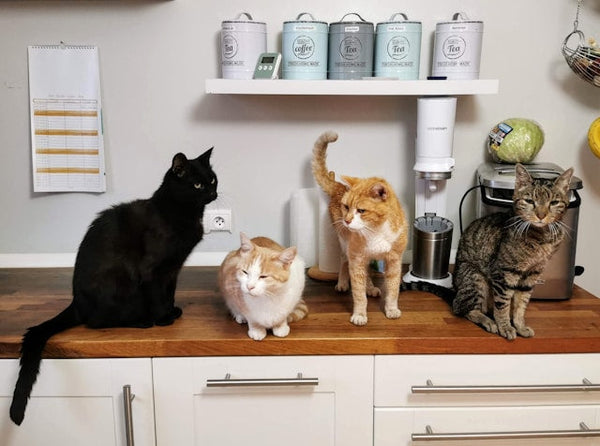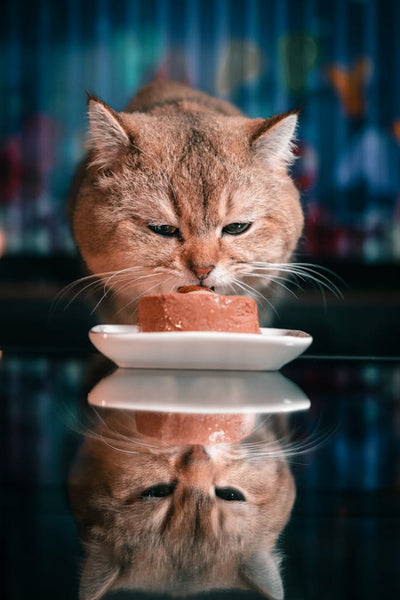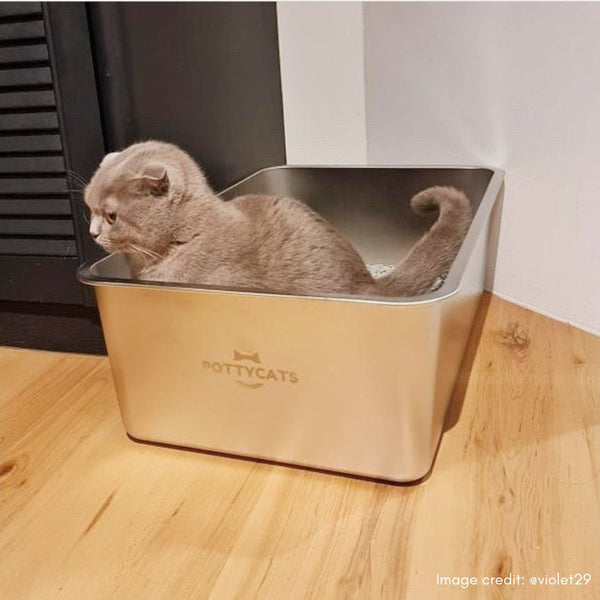
Ever walked into a room and been hit by an odor so strong it makes your eyes water and your nose curl? If you're a cat owner, you might have experienced this phenomenon in your own home. No, it’s not a forgotten tuna can or a mysterious leak—it’s your cat’s poop. But here’s the twist: not all cat poops are created equal. That’s right, one cat’s poop can smell far worse than the others in the household. Let’s dive into this stinky conundrum with a touch of humor and a sprinkle of science.
The Poop Spectrum: Why Smell Varies
Before we delve into the specifics, let’s acknowledge a universal truth: cat poop isn’t exactly a bouquet of roses. Every cat owner knows that the litter box can sometimes feel like a hazardous zone. But why is it that one cat’s poop can clear a room faster than a skunk at a garden party?
1. Dietary Differences
The most significant factor affecting poop odor is diet. Just like humans, cats are what they eat. If one of your cats is on a diet of high-quality, protein-rich food, while another is munching on cheaper, less digestible kibble, the difference in poop smell will be noticeable. High-quality food generally leads to more solid, less odorous stools. Conversely, a diet with a lot of fillers and artificial ingredients can cause more foul-smelling feces.
Think of it as the feline equivalent of a gourmet meal versus a fast-food binge. The gourmet meal (premium cat food) might still have some strong flavors, but the fast-food diet (cheap kibble) will leave a lingering odor that’s hard to ignore.
2. Gut Health and Digestion
Gut health is like the secret ingredient in the recipe of poop odor. Just as some people have sensitive stomachs or digestive issues, so do cats. If one of your feline friends has digestive problems, such as IBS (irritable bowel syndrome) or a sensitive stomach, their poop might be more pungent. This is because incomplete digestion can lead to more smelly byproducts.
Cats with a balanced gut flora, thanks to a diet rich in fiber and probiotics, will generally produce less smelly waste. So, if your cat’s poop smells like it’s been marinated in vinegar, it might be time to check their gut health.
3. Litter Box Setup
Your litter box setup is another crucial player in the game of poop odor. If you’re using a subpar litter or haven’t cleaned the box in a while, even the most well-behaved cat’s poop will start to stink. Here’s a quick checklist for keeping things fresh:
- Type of Litter: High quality clumping litter usually does a better job at containing odors compared to conventional varieties.
- Litter Box Size: Ensure the box is large enough for your cats to move around comfortably. A cramped box can lead to more mess and smell.
- Cleaning Routine: Scoop daily and change the litter regularly. A box that’s neglected will harbor odors no matter how well-behaved your cats are.
4. Individual Cat Factors
Every cat is unique, and their poop reflects that. Factors such as age, weight, and health conditions play a part in how their poop smells. For example:
- Age: Older cats might have different dietary needs and digestive issues that can affect poop odor.
- Weight: Overweight cats might have more health problems, including digestive issues, that contribute to smellier waste.
- Health Conditions: Conditions like diabetes or kidney disease can affect a cat’s digestion and lead to more pungent stools.
The Case of the Stinky Poop: Solving the Mystery
Now that we’ve outlined some potential culprits, let’s address how you can tackle the issue of the particularly foul-smelling poop in your household:
1. Review Their Diet
Take a close look at what each cat is eating. If one cat’s food seems to be the source of the stink, consider switching to a higher-quality ingredients brand. Gradual transitions are key here—suddenly changing a cat’s diet can lead to more digestive issues.
2. Consult Your Vet
If you suspect that a cat’s digestive health is causing the problem, a trip to the vet might be in order. They can check for underlying health issues and offer recommendations for diet adjustments or supplements to improve gut health.
3. Upgrade the Litter Box
If your litter box setup isn’t cutting it, consider upgrading. A high-quality clumping litter, a larger box, a steel box and a more frequent cleaning schedule can make a big difference. There are also self-cleaning litter boxes that might help if you’re not keen on daily scooping.
4. Monitor and Adjust
Keep an eye on your cats’ poop over time. Changes in diet or litter box setup can take a little while to show results. Patience is key here.
The Poop Scoop: Conclusion
In summary, the mystery of why one cat’s poop can smell worse than the others boils down to a mix of diet, gut health, litter box setup, and individual cat factors. It’s a complex equation, but with a little detective work, you can solve the problem and restore harmony—and fresh air—to your home.
Remember, while cat poop might never be the most pleasant topic of conversation, understanding what’s behind those odors can help you create a more comfortable environment for both you and your furry friends. So, the next time you’re confronted with an overpowering stench, you’ll have the knowledge to tackle it head-on and restore peace to your litter box kingdom.



